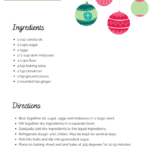Did you know that Americans spend 60 billion dollars on diets, supplements, and products to lose weight every year?
So much wasted money! Please don’t fall for it, even if your sweet friend is the one trying to get you to buy that “miracle plan that worked so well for her.”
 The truth is—the diet industry is about making money. Sure, you can lose weight following a restrictive plan. Scientific evidence shows that weight loss follows a reduction in calories.
The truth is—the diet industry is about making money. Sure, you can lose weight following a restrictive plan. Scientific evidence shows that weight loss follows a reduction in calories.
Any diet where you cut down on calories can work for weight loss. Unfortunately, a large majority of dieters don’t keep the weight off.
Usually these gimmick plans are too restrictive to live on, too boring or too expensive.
The diet plan fails.
Often people blame themselves for not being able to stick to the plan and for their subsequent weight gain. They feel shame and guilt. That makes me sad.
You did not fail and it’s not your fault. The diet industry really doesn’t want you to succeed. They want your money. To get it they prey on your insecurities.
How about trying something different this year? Something that is healthier, more cost effective, and puts you in the driver seat. Instead of looking for a magic fix from a fake wizard, look at yourself and discover what is right for you.
Ask yourself:
- What would my ideal life look like? What would I be able to do? Get specific. Write it down.
- What steps can I take to get from where I am now to where I want to be?
- Why is this important to me? Dig deep here and keep asking yourself why it is important to achieve your vision until you are sure of your true reason.
When you are clear about your vision for yourself (and know why it is so important) you will obtain the motivation to keep going on those days when you just don’t feel like working toward it.
Now that you have identified your vision it is time to figure out how to achieve it.
Identify those changes necessary to meet your vision.
Break these down into baby steps. Just like everything else, you must take one step at a time and understand that nothing happens instantly.
Make sure each step is small enough that it is doable. Big changes are overwhelming and you can become paralyzed. Research shows that small changes bring success and provide motivation to keep going. Small steps eventually add up to lasting and sustainable change.
Then set a SMART (Specific, Measurable, Action-oriented, Realistic, Timely) goal.
Here’s an example:
Let’s say you want to lose weight. “Your why” is because you want to remain independent and be able to play with your grandkids and travel when you retire.
You realize your snacking at night is out of habit and as a way to relax. This is getting in the way of losing weight. You are taking in calories and you aren’t even hungry.
You are ready to change this. You think it is an important step to meet your weight loss goal.
Set a SMART plan:
- Specific—Sunday through Thursday nights I will not eat anything after dinner.
- Measurable—I will keep track on my calendar all the nights I do not eat after dinner.
- Action-oriented—yes it is action towards a behavior change.
- Realistic—Yes, it is realistic on weeknights. I need to go bed earlier to get more sleep instead of eating.
- Timely—I will start Sunday and do this goal for 2 weeks.
This plan specifically matches your vision and what you are ready for right now.
Assess how often you met your goal in 2 weeks. Even if you did not meet it, you can learn from the experience and move forward. What got in the way of meeting the goal? What changes can I make to meet my goal? Do I need to ask for support? Do I want to continue this goal?
What new goal do I want to make?
Be gentle and kind to yourself as you make changes to be healthier. Focus on the wins. It seems natural to focus on when you missed the mark so force yourself to focus on the positive. Remember progress, not perfection, is the goal. Every day is a new beginning. Every day is a chance to succeed.
You can do this!






Leave a Reply